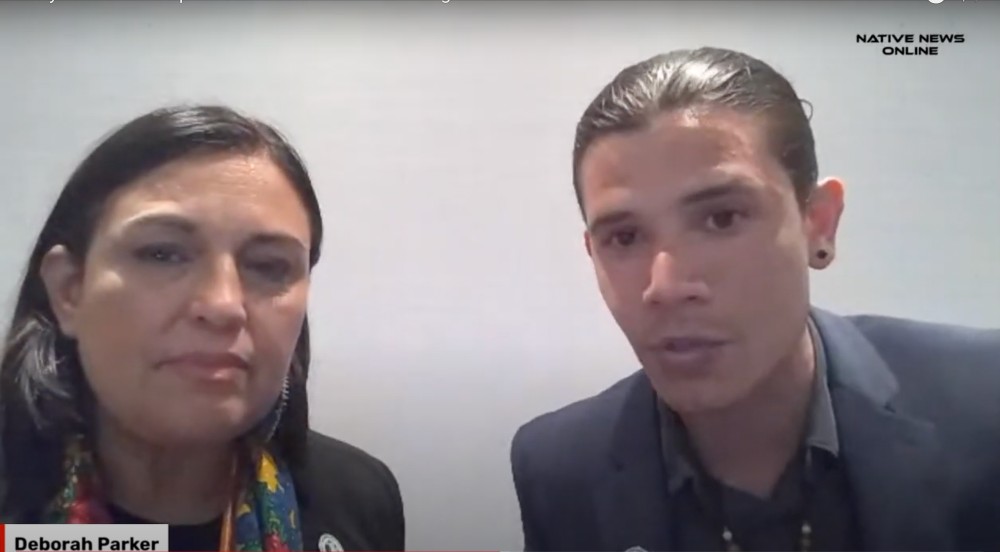
- Details
- By Neely Bardwell
An emotional day in Indian Country yesterday, May 11, as the Department of Interior released their Boarding School Initiative Volume 1 Investigative Report. Shortly after this report was released, Native News Online spoke with Deb Parker and Dr. Samuel Torres, Chief Executive Officer and Deputy Chief and Executive Officer of the Native American Boarding School Healing Coalition (NABS), respectively.
Parker spoke to the process of the initiative and her involvement with the initiative.
“We are still analyzing and we’re still trying to find the words to support this document and the words to find understanding in this time of exploration and this time of truth telling. It has been an emotional week,” she continues, “NABS has brought boarding school survivors to Washington D.C. to talk to senators and congressmen and women.”
Torres emphasized the groundbreaking nature of the report
“Really what I think was most enlightening for us and what has put us in a very profoundly reflective place today is that for the first time the federal government has put together a blueprint, an overall apparatus, that has identified that this is, for the first time, an accounting of all of the federal boarding schools,” he continues, “This is a foundational moment.”
Watch the entire livestream:
Tell Us What You Think
More Stories Like This
Native News Weekly (August 25, 2024): D.C. BriefsNavajo Nation Mourns the Passing of Former Vice President Rex Lee Jim
Deb Haaland Earns Endorsement From Communications Workers of America Local 7076
University Soccer Standout Leads by Example
Two Native Americans Named to Democratic Congressional Campaign Committee's“Red to Blue” Program
Help us defend tribal sovereignty.
At Native News Online, our mission is rooted in telling the stories that strengthen sovereignty and uplift Indigenous voices — not just at year’s end, but every single day.
Because of your generosity last year, we were able to keep our reporters on the ground in tribal communities, at national gatherings and in the halls of Congress — covering the issues that matter most to Indian Country: sovereignty, culture, education, health and economic opportunity.
That support sustained us through a tough year in 2025. Now, as we look to the year ahead, we need your help right now to ensure warrior journalism remains strong — reporting that defends tribal sovereignty, amplifies Native truth, and holds power accountable.
 The stakes couldn't be higher. Your support keeps Native voices heard, Native stories told and Native sovereignty defended.
The stakes couldn't be higher. Your support keeps Native voices heard, Native stories told and Native sovereignty defended.
Stand with Warrior Journalism today.
Levi Rickert (Potawatomi), Editor & Publisher

